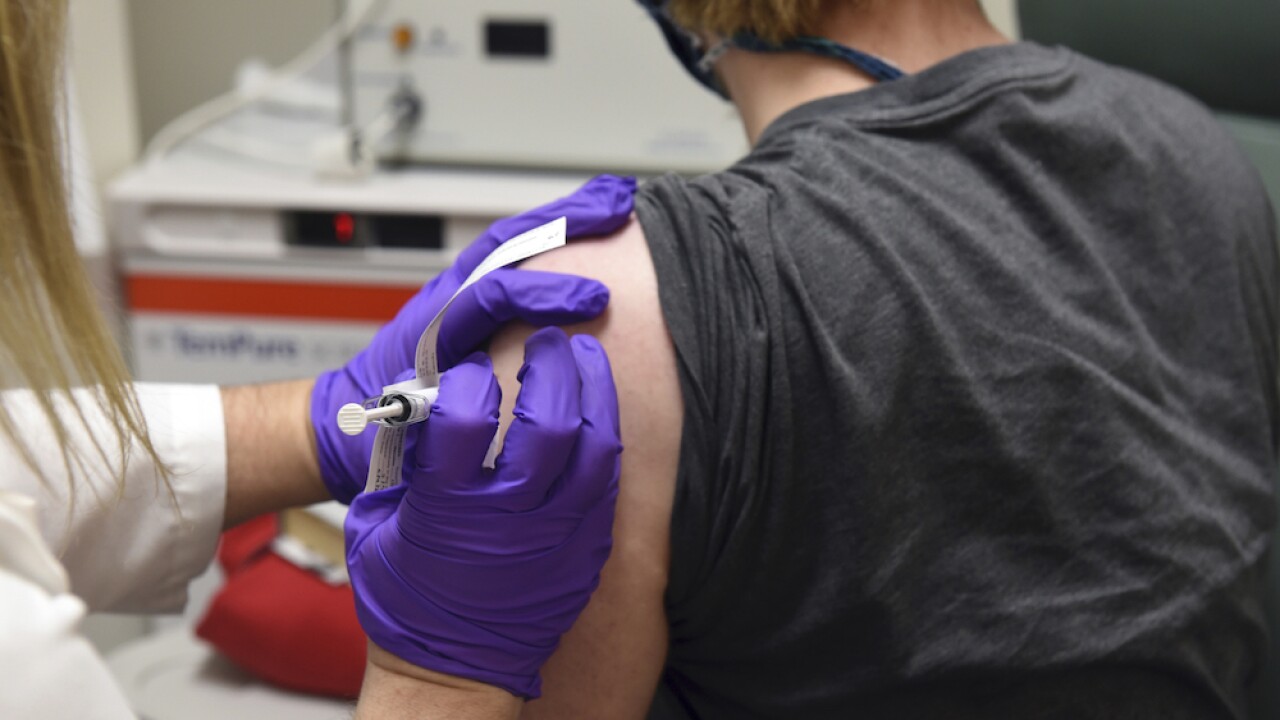Following Emergency Use Authorization by the FDA and a formal recommendation from the Centers for Disease Control and Prevention (CDC) over the weekend, the first Americans began receiving Pfizer's COVID-19 vaccine on Monday.
As the sun rose on the east coast, medical professionals began distributing vaccines to patients who had lined up for an initial dose.
In New York, Gov. Andrew Cuomo was there to witness the first injection in his state. According to Scripps station WPIX in New York City, the first person to receive the vaccine in the state was Sandra Lindsay, a nurse who works at Long Island Jewish Medical Center.
Kentucky Gov. Andy Beshear was also on hand to see the first injections in his commonwealth.
At 2:30 p.m. ET in Washington, D.C., Health and Human Services Director Alex Azar and Surgeon General Jerome Adams will be on hand to witness as health care workers at George Washington University Hospital will be among the first to receive the vaccine.
The first injections of the vaccine came the same day that the U.S. is expected to surpass 300,000 COVID-19 deaths. As of Monday morning, Johns Hopkins reports that the U.S. had total 299,000 deaths; the country has seen more than 2,000 deaths a day in recent weeks.
On Friday night, the FDA made the much-anticipated move to approve Pfizer's COVID-19 vaccine candidate for Emergency Use. The move allows the U.S. to begin inoculating Americans against COVID-19, which is currently spreading and killing at rates not yet seen during the pandemic.
The FDA prompted Pfizer to begin shipping the first doses of the vaccine nationwide. On Sunday, the CDC issued a recommendation for the vaccine, giving health care professionals to start distributing shots to those that want them.
Pfizer's vaccine requires two doses, which need to be taken 21 days apart. Everyone who receives an initial dose on Monday will need to return next month to complete the process.
Pfizer's development of a COVID-19 vaccine — which studies have shown to be 95% effective in preventing the virus — in under a year is nothing short of a medical miracle. The previous speed record for vaccine development occurred in the 1960s when researchers developed a vaccine for the mumps in just four years.
However, plenty of obstacles remain for the U.S. amid the pandemic. Anywhere from about 30% to 50% of Americans have expressed skepticism in getting a COVID-19. Health care experts suspect that about 70% of Americans would need COVID-19 antibodies in order to reach herd immunity.
A COVID-19 vaccine developed by Moderna is expected to be granted Emergency Use Authorization later this week, and health care professionals could begin distributing that vaccine as soon as next week.
An earlier version of this story mistakenly stated that the two doses of Pfizer's vaccine needed to be taken 28 days apart.



